National Clinical Guidance for Stroke states people with motor recovery goals undergoing rehabilitation after a stroke should receive a minimum of 3 hours of multidisciplinary therapy a day. Hobbs Rehabilitation provides intensive rehabilitation packages to help achieve patient-led goals post-stroke.
Suitable for individuals who require intensive and focused care, who are not yet ready to return home after discharge from hospital.
Suitable for individuals who do not require continuous medical supervision and can visit any of our centres; Intensive rehabilitation is available at specific locations.
Suitable for individuals transitioning from inpatient rehabilitation and those whose health condition prevents them from visiting any of our centres.
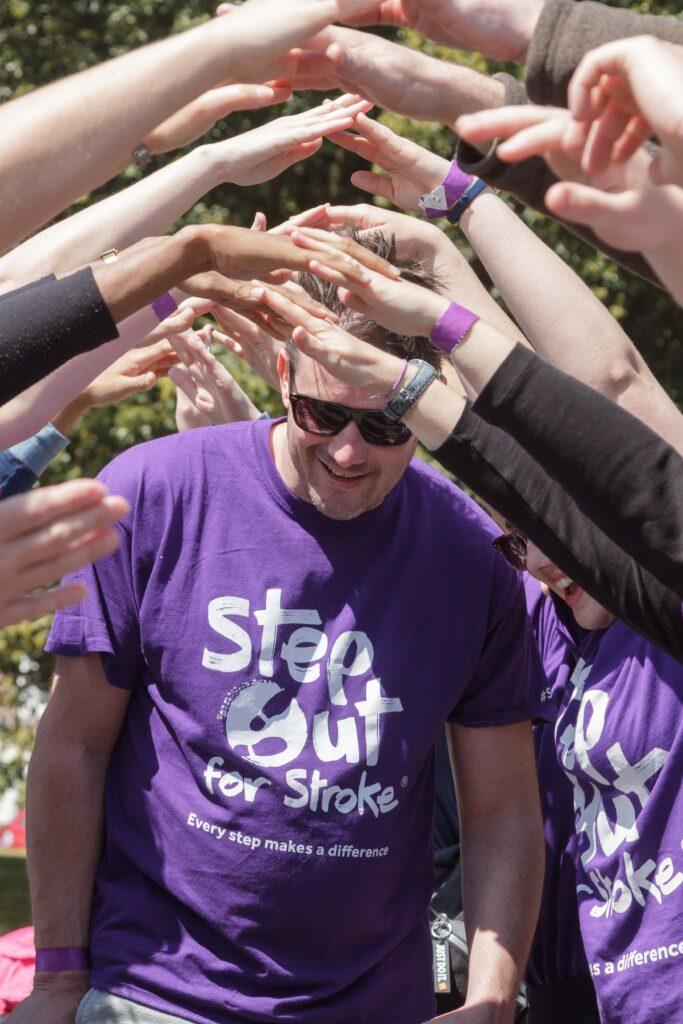
Hobbs Rehabilitation provides a multidisciplinary service post-stroke to help ensure that every individual can reach their full potential.
Utilise the water environment to help restore movement, enhance muscle strength and improve balance.
Address cognitive, emotional and behavioural changes that can result from stroke.
Elevate your rehabilitation journey by staying active with our groups and additional activities.
Increase the number of repetitions to unlock your potential with cutting-edge technology.
Guiding individuals post-stroke to regain their independence and address challenges in daily life.
Achieve physical, cognitive and emotional rehabilitation goals by engaging with music.
Providing support and correction, addressing mobility, promoting proper posture and enhancing gait.
Improve balance and mobility and enhance muscle strength while reducing stiffness and pain.
Supporting exercises and daily activities, guided by our therapists to enhance progress and well-being.
Maximise functional independence and elevate quality of life with a specialist consultant.
Help with speech, swallowing, written communication and non-verbal expression.
Intensive rehabilitation available at specific locations.
Adjusting to life after a stroke can be challenging, especially when faced with abrupt changes in mobility, social interactions, and overall lifestyle.
Hobbs Rehabilitation clinical neuropsychologists offer valuable assistance by providing:
Assessment and Evaluation: Clinical neuropsychologists conduct detailed assessments to evaluate cognitive functions such as memory, attention, problem-solving, language and executive functions. These assessments provide a clear picture of an individual’s cognitive strengths and areas of impairment.
Bespoke Treatment: Based on assessment results, clinical neuropsychologists collaborate with our multidisciplinary rehabilitation team to create individualised treatment plans. The treatment plans address cognitive deficits, emotional changes and behavioural challenges to maximise recovery and functional independence.
Professional Support and Education: Our clinical neuropsychologists offer guidance, consultation, teaching, and supervision to fellow healthcare professionals, as well as family members and caregivers. This collaborative approach ensures a well-rounded support network for stroke survivors.
Hobbs Rehabilitation’s clinical neuropsychologists are dedicated to helping individuals navigate the challenges that arise after a stroke, promoting cognitive, emotional, and behavioural well-being for a better quality of life.
Our dedicated occupational therapists at Hobbs Rehabilitation focus on enhancing various aspects of personal care, work, or leisure that may present challenges following a stroke. We achieve these goals through a range of effective methods, including:
Functional Activities: Our occupational therapists guide stroke survivors in regaining independence in everyday tasks. This may involve practising functional activities individually or as part of group therapy sessions.
Environmental Assessment: We conduct assessments in your own environment to identify specific needs for equipment, adaptations, or additional rehabilitation to facilitate a smoother daily life.
Hand Therapy: Our therapists offer specialist hand therapy, which includes splinting and tailored exercise programs, to improve hand function and dexterity after a stroke.
Cognitive Deficit Evaluation and Treatment: We assess and address cognitive deficits that may have resulted from the stroke, helping individuals regain cognitive function and cognitive independence.
Perception and Problem-Solving Support: Our therapists work on aiding perception and problem-solving difficulties, offering strategies and interventions to improve these essential cognitive skills.
At Hobbs Rehabilitation, our occupational therapy services are designed to empower stroke survivors and assist them in reclaiming their independence and quality of life.
Our Hobbs Rehabilitation neurological physiotherapists are dedicated to enhancing stroke recovery through a range of effective treatment techniques. Our primary goals are to:
Boost Muscle Strength: Our individualised stroke treatment programs include targeted exercises designed to increase muscle strength, mobility, and overall physical function.
Enhance Balance and Mobility: We conduct comprehensive assessments to determine the most suitable mobility aids and offer postural re-education to improve balance and mobility, reducing the risk of falls.
Alleviate Muscle Stiffness, Spasms, and Pain: Through carefully structured stretching routines, we help alleviate muscle stiffness, spasms, and pain, contributing to a more comfortable recovery process.
Prevent Falls: We focus on balance enhancement, gait re-education, and specialist training to reduce the risk of falls, ensuring the safety and well-being of stroke survivors.
Promote Functional Activity: Our physiotherapists provide tailored home exercise programs to improve the functionality of affected limbs, facilitating greater independence in daily life.
Address Foot Drop: Using Functional Electrical Stimulation (FES) and various orthotics, we work to mitigate foot drop, restoring mobility and comfort.
Enhance Overall Function and Quality of Life: Our comprehensive stroke rehabilitation approach combines stretching, aerobic exercises, strength training, and relaxation techniques, resulting in improved function, independence, and overall quality of life.
At Hobbs Rehabilitation, we are committed to optimising stroke recovery and helping individuals regain their fullest potential for a more active and fulfilling life. Our experienced neurological physiotherapists are here to support you on your rehabilitation journey.
Effective communication and the ability to swallow safely are essential aspects of daily life. If you’re facing challenges in these areas following a stroke, it can significantly affect your overall quality of life.
At Hobbs Rehabilitation, our dedicated speech and language therapists specialise in addressing these concerns. We offer valuable support through:
Feeding and Swallowing Guidance: Our therapists provide expert guidance to help you safely navigate feeding and swallowing, reducing the risk of choking and ensuring your nutritional needs are met.
Communication Training for Family and Caregivers: We offer training sessions for your family and caregivers, equipping them with the skills to effectively communicate with individuals experiencing dysphasia.
Muscle Strengthening for Improved Speech: Through targeted exercises, we work on strengthening the muscles of the face and mouth, facilitating improved speech and articulation.
Communication Aid Recommendations: Our speech therapists offer advice on communication aids and assistive devices that can enhance your ability to communicate effectively.
Flexible Treatment Options: Rehabilitation can take place at our centres, online or in the comfort of your own home. Hobbs Rehabilitation also offers one-on-one therapy sessions and communication group sessions, with treatment settings tailored to accommodate individual preferences and needs.
Hobbs Rehabilitation is committed to helping stroke survivors regain their communication and swallowing abilities, ultimately improving their quality of life.
Symptoms following a stroke can vary significantly depending on factors like the type of stroke, its severity, and the location of the brain affected, therefore our treatment plans are designed to address and educate the specific symptoms and needs of each individual.
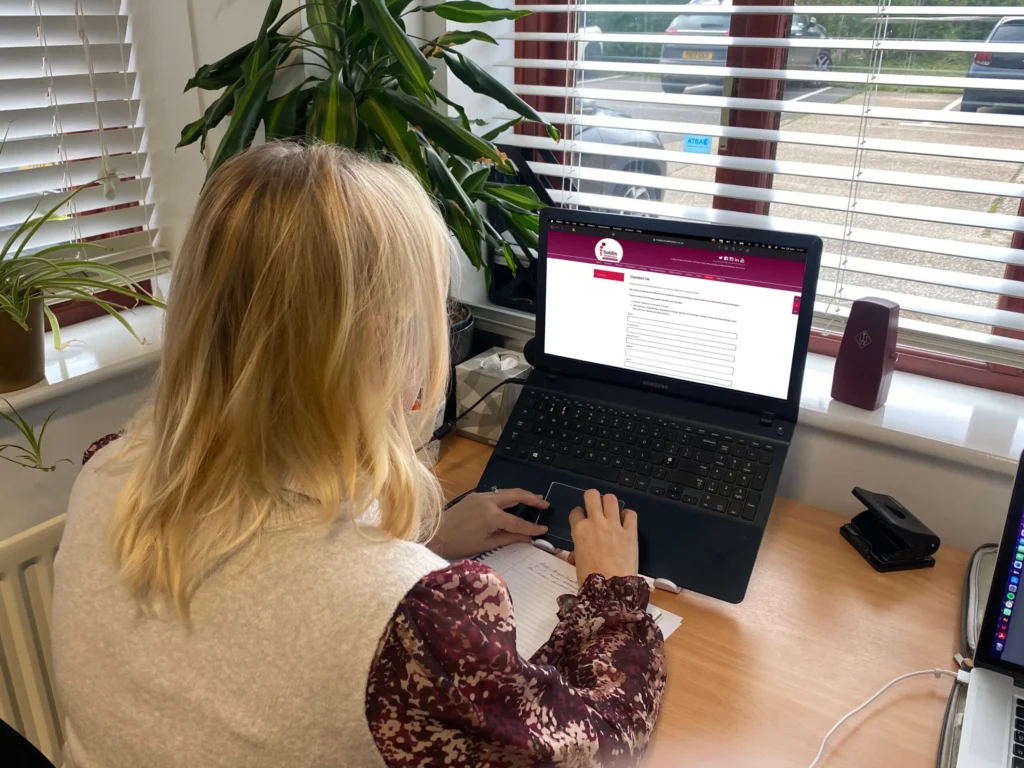
Enquire today about any of our services or packages
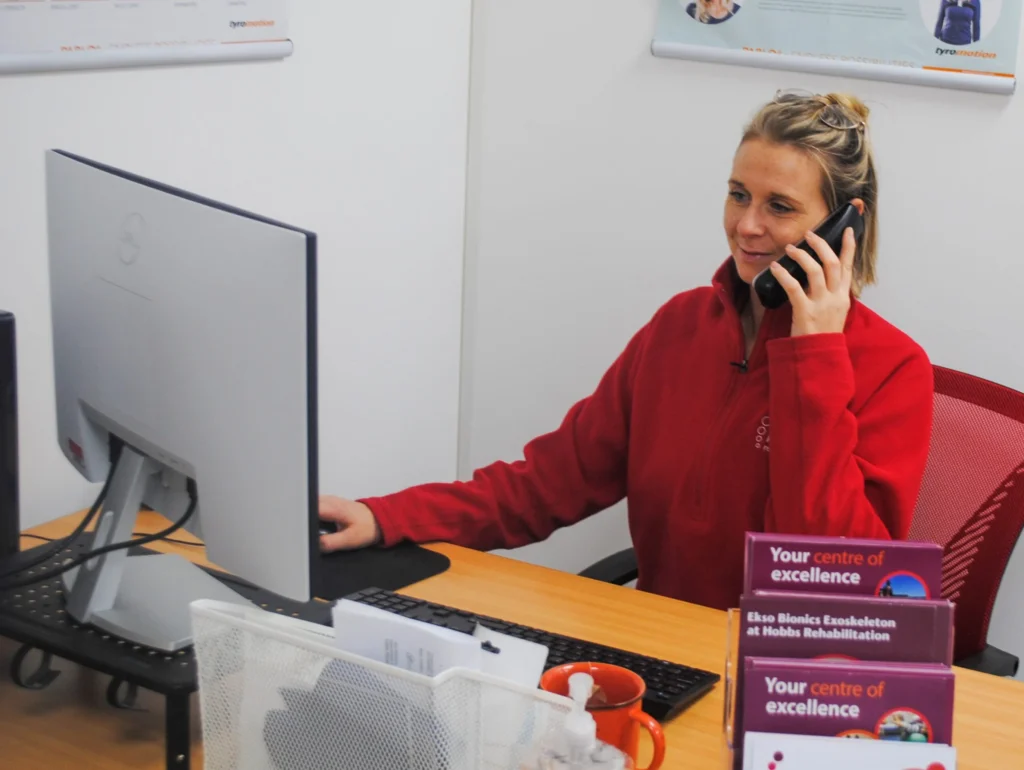
You will be contacted to determine your needs and assessment location
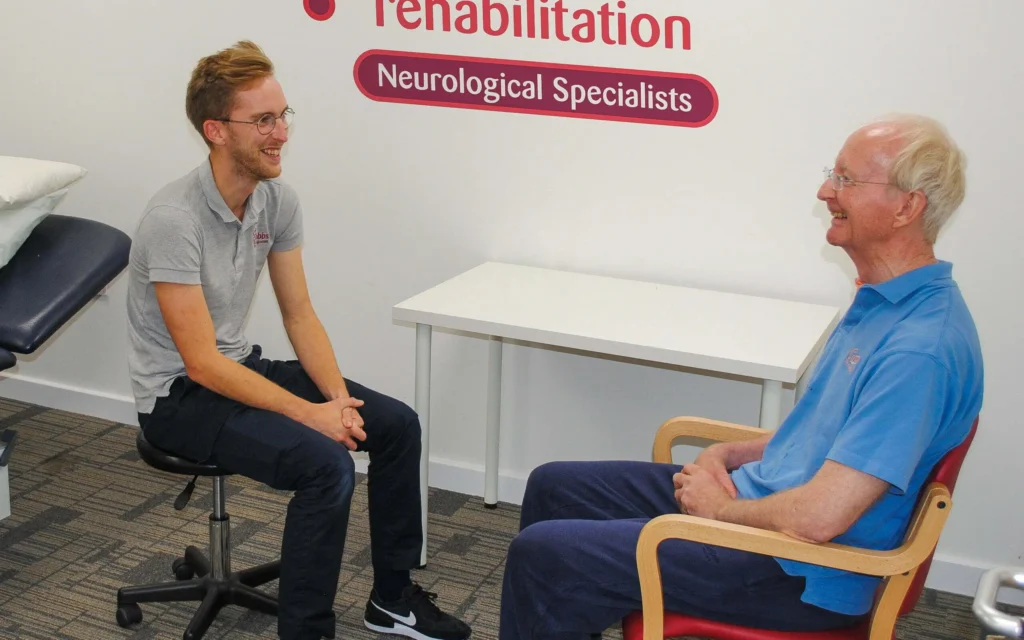
Your therapist will recommend the best course of treatment
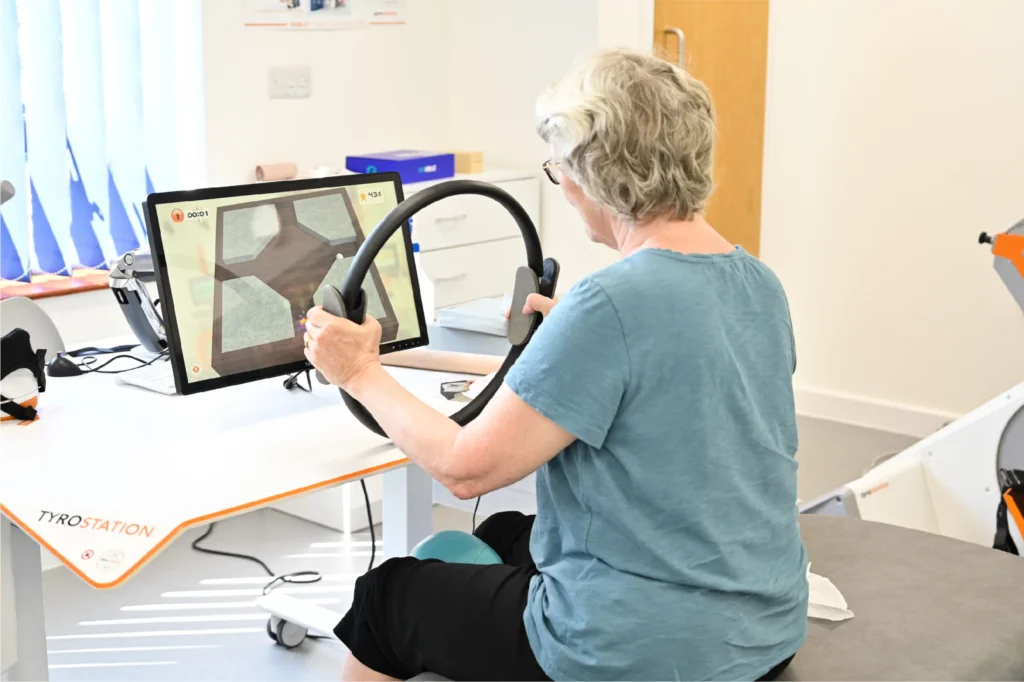
Once you have booked you will be ready to start your treatment plan.
We offer our services in inpatient, outpatient and community settings – find your nearest centre.
Alternatively, call us on 01962 779796 to talk with our team or fill out our enquiry form on our contact page.
We accept self-referrals and referrals from Medico-Legal, health and social care professionals and the charity sector.
Rehabilitation is not just about short-term recovery; it’s also about maintaining the gains achieved over time. Exercise groups and support activities can become part of an individual’s long-term maintenance plan, helping to prevent regression and promoting a higher quality of life.
Explore a range of common questions about stroke, and see how you may benefit from an assessment. If your question still isn’t answered, get in touch – contact us.
A stroke or cerebrovascular accident (CVA) results from an interruption of the blood supply to part of the brain. Although brain cells are unable to recover from the damage caused by a stroke, areas of the brain are able to adapt to learn new tasks and compensate for the area that has been damaged.
Ischemic Stroke: About 80% of strokes are ischemic and result from a clot or blockage forming in the blood vessel, causing a lack of oxygen to the brain cells. The clot can occur at the site of the blockage, or it can travel from other blood vessels in the body and become lodged in the arteries that supply the brain.
Haemorrhagic Stroke: Haemorrhagic strokes result from blood vessels in and around the brain rupturing and causing bleeding in the surrounding areas. This causes a build-up of pressure which damages the delicate tissues. The disruption of the blood supply also results in the cells in the surrounding areas being starved of oxygen.
Transient Ischemic Attack: Transient ischemic attacks (TIA) are often known as mini-strokes. These are brief episodes where some brain function is temporarily lost due to a short disruption of the blood supply. Symptoms, such as limb weakness, last less than 24 hours as the cells in the brain have not been permanently damaged.
Join our research trials - open to all, including non-Hobbs patients.
Don’t just take our word for it – take theirs